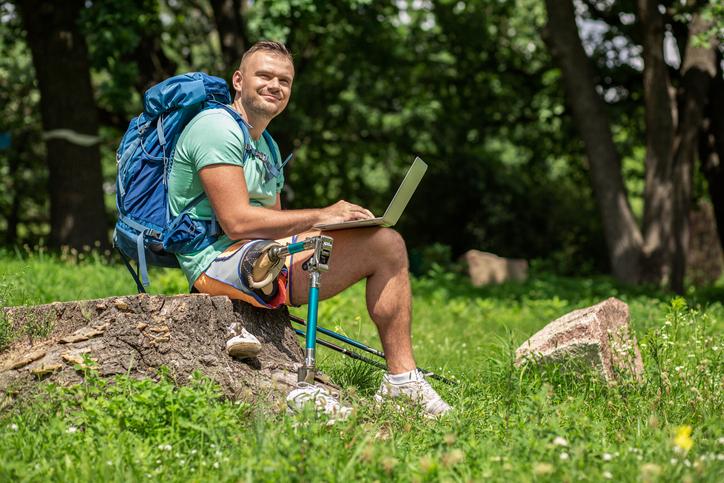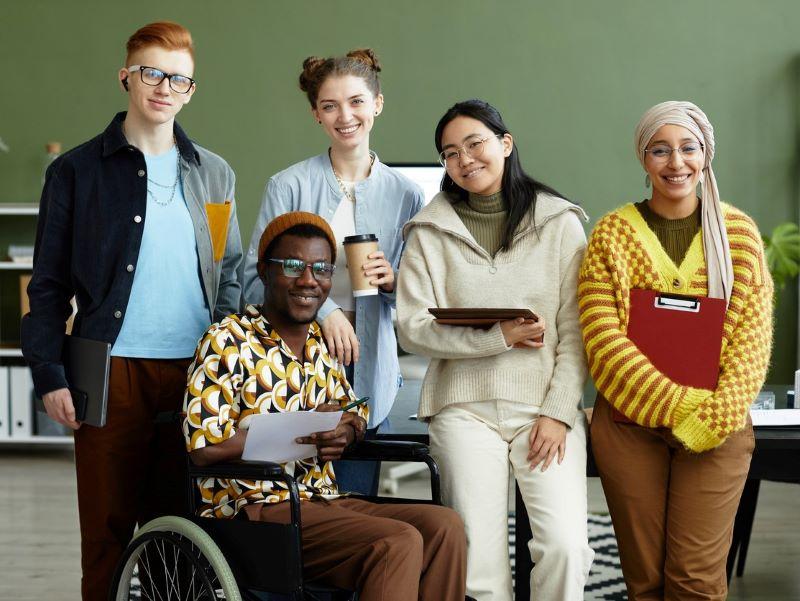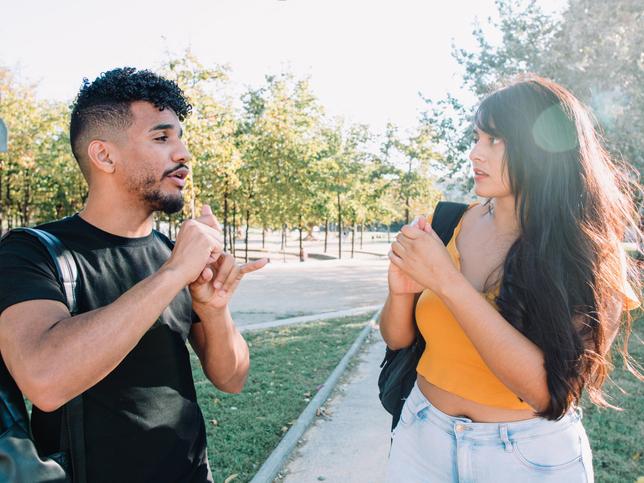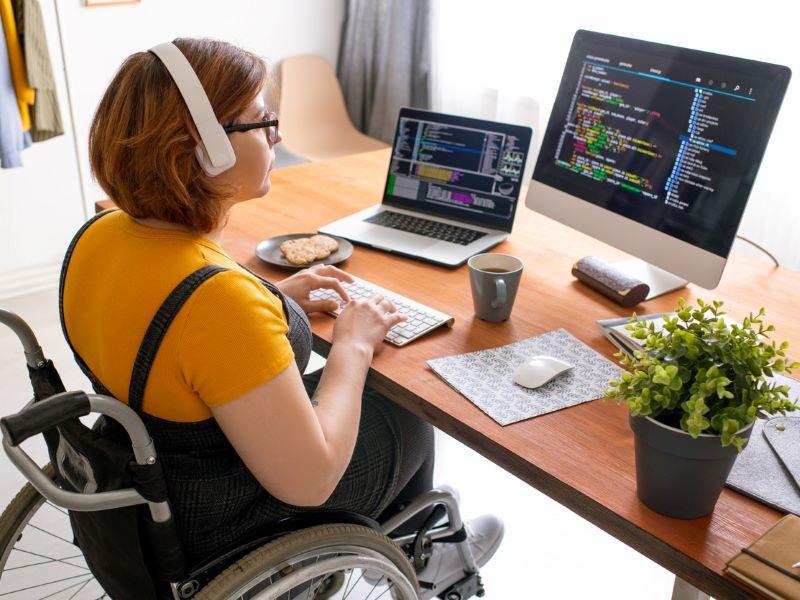
Ten steps to equity: making fieldwork accessible

You may also like
Fieldwork gives researchers their first taste of experiential learning. It provides a source of meaningful embodied knowledge as they interact with the social, cultural and physical environment. Fieldwork is mandatory for several degree programmes, including geography, anthropology and environmental sciences, and it has become invaluable to social science and humanities curricula. There is no reason why fieldwork cannot be inclusive, yet it retains an unnecessarily macho image that can deter disabled students and contributes to limited representation across field-based disciplines. Ensuring that fieldwork is accessible to all is both essential and possible. I have identified 10 ways to make fieldwork work for everyone.
1. Normalise fieldwork with a disability
Disabled bodies are normal bodies. However, disciplinary expectations around fieldwork are historically ableist and often present outdated perceptions of the body and mind of the fieldworker. In practical terms, an academic in a field-based discipline could normalise disability by teaching fieldwork in a way that positively highlights the work of disabled academics in the field as standard, attainable and usual fieldwork practice.
- Resource collection: Routes to improving disability support in higher education
- What I’ve learned from a decade of working with a disability in academia
- Apply the social model of disability to HE: viewing inclusion as a social good
2. Represent disability in fieldwork
Inclusion begins with representation. When disabled students do not see themselves depicted in the field, it then becomes hard for them to imagine themselves doing fieldwork. Visibly disabled people are often absent from the prospectuses of field-based studies. Instead, fit and healthy young people are shown exploring challenging environments, including ancient ruins or mountains. These ableist depictions deter disabled students from even applying. To counteract this, disabled people should be included across promotional material.
3. Fund disability-inclusive fieldwork training
Intrepid fieldwork opportunities have traditionally been offered to researchers who already have extracurricular skills – for example, training in ice climbing or scuba diving. This produces a bias against disabled people, who are less likely to already have these qualifications. Research funders should provide disability-inclusive fieldwork funding to support the provision of outdoors skills training, equipment and personal assistance needed by a disabled person to undertake fieldwork safely.
4. Don’t make assumptions
Don’t assume that someone cannot or will not undertake fieldwork because they are disabled. Don’t assume knowledge about a disabled person’s capacity because of your previous experiences. You might have previously supported someone in the field or undertaken fieldwork yourself with a disability. The person you are facilitating will know their needs and boundaries. These requirements might change over time and should be revisited before each field trip.
5. Bake inclusivity into field trips
Fieldwork must integrate inclusivity from start to end. Ways to bake inclusivity into fieldwork include ensuring pre-trip learning outcomes, briefings and handouts are accessible. During the trip, activities, equipment, food and accommodation should be suitable for everyone. Clearly defined rest breaks, mealtimes and finish times communicated in advance can help with energy management. Extracurricular activities should include quieter options without alcohol. Finally, students should be offered support and debriefing after fieldwork, to identify issues and re-embed learning outcomes.
6. Be responsive and enabling
A responsive approach to disability during fieldwork provides solutions only when an issue arises. However, it is better to be prepared in the first place. An enabling approach considers the challenges that might arise before a disabled person is in the field and aims to ensure that potential barriers to participation are removed. This might be achieved by undertaking a site survey, field activities review and risk assessment. Both approaches are needed to support disabled field trip participants.
7. Virtual fieldwork is real fieldwork
The pandemic shifted cultural attitudes towards fieldwork because lockdown necessitated the replacement of on-site outings with virtual field trips instead. This became the norm during Covid-19 and provided a viable alternative to on-site research. There are advantages to virtual fieldwork, including fewer barriers to access for disabled participants, decreased risk, reduced environmental impact and opportunities for experimentation that would otherwise be impossible – for example, virtually visiting Chernobyl. Virtual fieldwork of equivalent scope and quality could be offered as a viable alternative to on-site fieldwork.
8. Respect hidden disabilities
Not all disabilities are visible and the scope of disability should be considered when inclusive fieldwork is being planned. Clearly, access to the field site is essential. However, pacing and energy management might be important to some participants with hidden disabilities – for example, those with autoimmune conditions or chronic illness. Emotional support might be beneficial for those with mental health conditions. Neurodiverse researchers might experience sensory or communication differences that make some conditions or interactions more challenging.
9. Embrace failure and learn from it
Preparing for accessible fieldwork means preparing to adapt and react – and to learn from mistakes. We are all learning, so embrace failures and use them as opportunities to improve. After field trips and periods of fieldwork, plan to have debriefing meetings where staff and students can reflect on what can be done better next time.
10. Nothing about us without us
No one is better qualified to talk about disability than people who are disabled. Respect and learn from their expertise and involve disabled people in decision-making. Listen when they say what they need to complete fieldwork with parity and provide it. Ask what could be improved next time, collect and document feedback, and make changes. This does not, however, mean that the burden of organising accessible fieldwork should be placed on the shoulders of disabled colleagues alone. Accessibility work is work and should be shared equally across the department. Making fieldwork accessible is everyone’s responsibility.
Becky Alexis-Martin is an assistant professor of peace and international development at the University of Bradford.
If you would like advice and insight from academics and university staff delivered direct to your inbox each week, sign up for the Campus newsletter.


